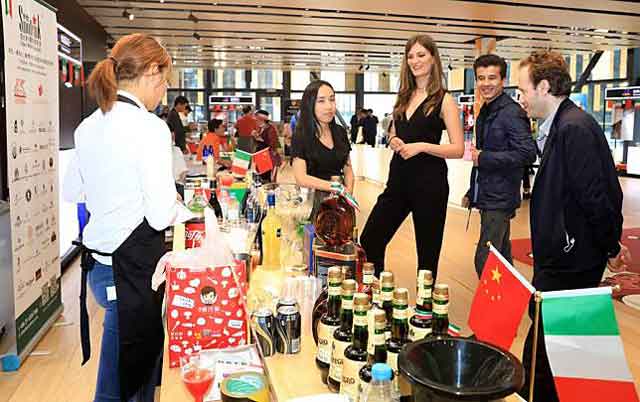
Kampala, Uganda | XINHUA | As Italy seeks to boost its agriculture sector and the “Made in Italy” brand as it relates to high-quality foodstuffs, analysts say the Chinese market will play an important role in the sector’s recovery.
Earlier this month, government officials and private sector representatives held a special meeting — mostly with online participation — focusing on updating and modernizing the “Made in Italy” brand, through promoting products and innovation, such as the use of blockchain technology as a way to guarantee authenticity and freshness.
On July 6, the government set aside 1.15 billion euros (1.31 billion U.S. dollars) in aid to farmers as part of its relaunch decree. But the consultancy Nomisma said in a report recently that it could take even more resources to help Italy recover from the damage from the coronavirus lockdown.
Analysts said the export sector would be a key part of the recovery, with trade to China a key aspect.
“The ‘Made in Italy’ brand is already well known and well respected,” Giorgia Palazzo, a partner with Expense Reduction Analysts who focuses in part on export issues, told Xinhua. “But the brand has to be modernized, publicized, and made to be more focused.”
Palazzo said exports to China of high-end Italian food production — wine, cheese, cured meats, and other such products had been steadily rising through last year. The trend has reversed so far in 2020, due mostly to the worldwide economic slowdown related to the coronavirus pandemic.
Palazzo said Italian agricultural exporters should take specific steps to assure that when global economic growth restarts that “Made in Italy” agricultural exports to China and other countries pick up where they left off.
“There are new ways to innovate, such as blockchain, as well as traditional methods, like the participation in trade fairs,” Palazzo said. “Chinese consumers are spending more on high-quality goods. Italy has to stand ready.”
Denis Pantini, head of the agro-industry division for Nomisma, said it made sense for “Made in Italy” food exports to China to be a priority.
“All export markets are important, but in the case of China there is a great deal of room to grow,” Pantini said in an interview. “Before the pandemic, Italian wine imports made up only around 6 percent of the Chinese import market; Italian food products were only around 2 percent. That shows how much potential there is.”
Pantini said Italy should work to promote “Made in Italy” products online in China while relying more on that brand rather than on regional equivalents.
“In many international markets, consumers don’t know what it means for a product to be from a specific region of the country,” he said. “But they do know what it means when something is produced in Italy.”
****
XINHUA
 The Independent Uganda: You get the Truth we Pay the Price
The Independent Uganda: You get the Truth we Pay the Price


